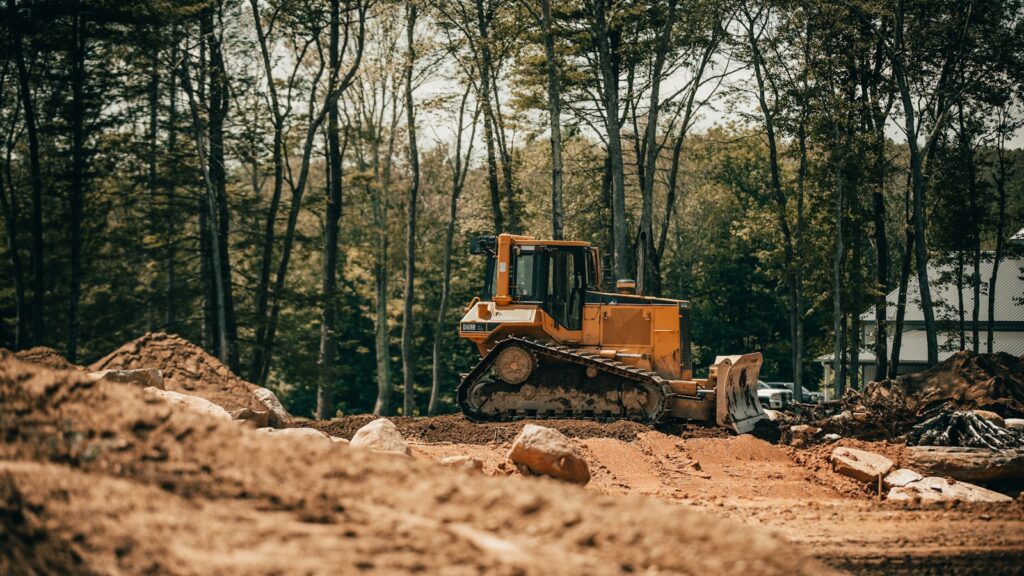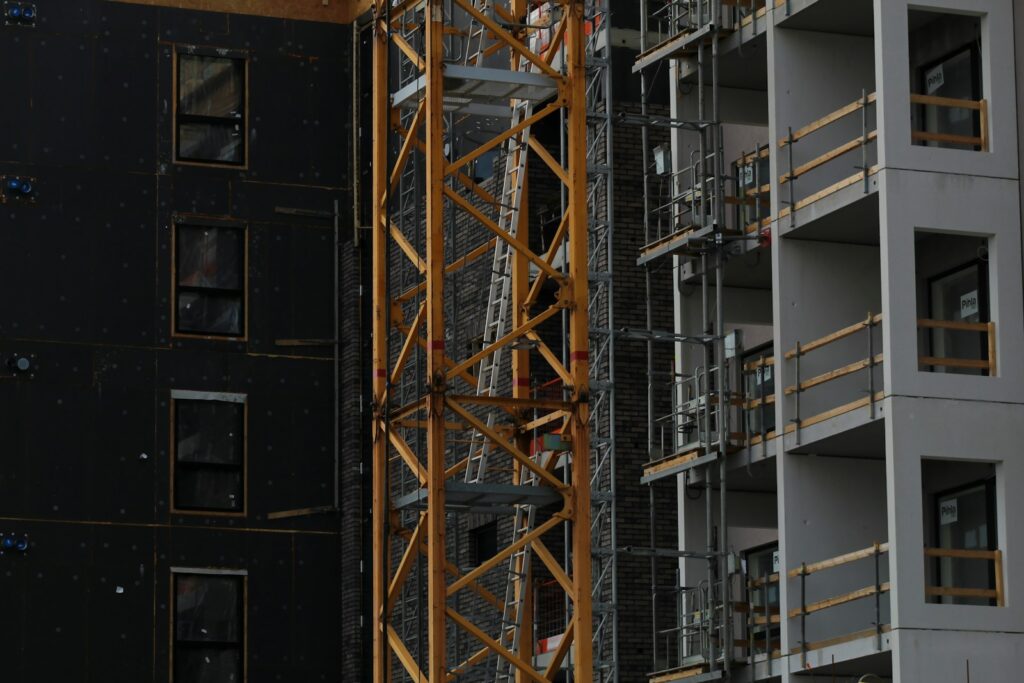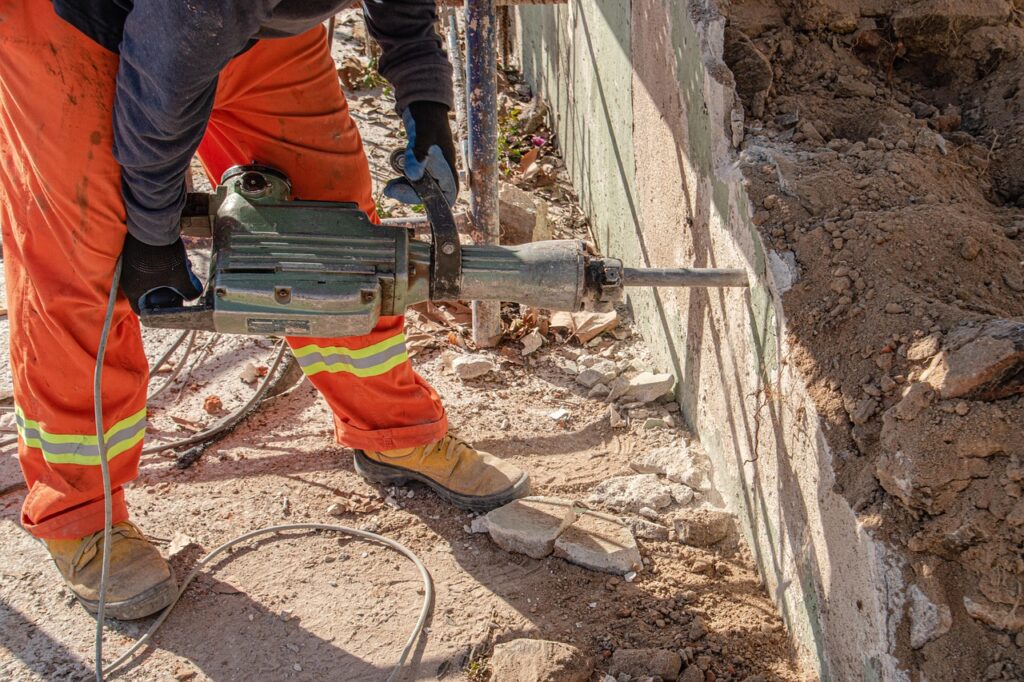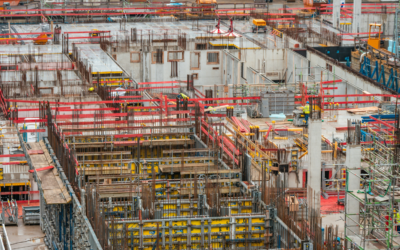Wondering what do contractors do?
Whether you’re embarking on a luxury real estate project or renovating an investment property, understanding the role of contractors is critical to your success. A construction job involves a collaborative effort between clients and contractors, emphasizing the responsibilities of both parties in planning and organizing the job.
Contractors are key to efficiently managing construction projects, adhering to safety standards, and delivering quality results. But for many property developers and homeowners, the intricacies of what contractors do can feel overwhelming.
This guide will provide a clear breakdown of the different types of contractors, their responsibilities, and how they manage construction projects. By its end, you’ll have a solid understanding of the construction process and feel confident collaborating with contractors to bring your vision to life.

What Do Contractors Do? | Types of Contractors
Not all contractors are the same. Several types specialize in different aspects of the construction process. Here’s a closer look:
General Contractors
General contractors oversee the entire construction process. They take charge of everything from acquiring permits and managing subcontractors to ensuring the project adheres to building codes. A general contractor’s role is comprehensive, making them ideal for large-scale projects where coordination is the biggest challenge.
Prime Contractors
Prime contractors work directly with clients and manage multiple subcontractors to ensure all aspects of the project are covered. They act as the main point of contact between property owners and the construction teams, ensuring seamless communication.
Design-Build Contractors
Design-build contractors handle both the pre-construction design phase and the construction work itself. This approach creates a single-source accountability for the project, streamlining communication and reducing mismanagement. South Coast Improvement Company’s Design-Build Service Package, for example, eliminates conflicts between architects and builders, ensuring the entire project aligns with client expectations.
Specialty Contractors
Specialty contractors focus on specific tasks such as electrical work, plumbing, or roofing. They often collaborate with general contractors to handle the specialized tasks required to complete a construction project.
Subcontractors
General contractors often hire subcontractors to manage specific tasks based on the project’s requirements, such as electrical installation and plumbing. While they don’t operate independently, their expertise ensures the quality and functionality of specific project aspects.

Responsibilities of a Contractor
Contractors manage diverse responsibilities to ensure every construction project progresses smoothly, including their construction workers. Below are a few key aspects of their role:
Managing the Construction Process
One of a general contractor’s key responsibilities is overseeing the entire project. The construction phase is a critical period in the project timeline where effective management and communication between clients and contractors are essential. From hiring skilled professionals to coordinating schedules, they ensure the project flows efficiently.
Ensuring Compliance with Building Codes
Licensed contractors must ensure that all work complies with local building permits and safety regulations. This prevents legal issues and ensures the finished project meets structural safety standards.
Budget Management
Staying within a construction budget is critical. Contractors are responsible for managing financial aspects, including sourcing materials and tracking expenses, to deliver projects on time and within budget.
Communication with Clients
An experienced contractor knows the importance of keeping clients informed. Clear communication between clients and various parties involved in a construction project, including the project manager, is crucial. Regular updates, open communication, and addressing concerns build trust and ensure a successful working relationship.
Quality and Safety Control
Contractors ensure the safety of workers at the construction site by providing adequate training and equipment. They also oversee the overall quality of the work to meet high standards.
South Coast Improvement Company exemplifies these responsibilities by delivering client-focused projects while efficiently handling unexpected challenges.

Construction Project Management
Effective construction management is at the heart of every successful project. A construction manager plays a vital role in both the design and early execution phases of construction projects, leveraging their expertise to assist with budgeting, scheduling, and project efficiency. Contractors manage all moving parts to ensure timely and quality outcomes.
Planning and Scheduling
Contractors create a roadmap to guide the project from start to finish. They develop a detailed schedule, accounting for specialized tasks, material delivery, and worker availability to avoid delays.
Managing Subcontractors
Highly skilled subcontractors play a crucial role in completing specific components of a project. A contractor is responsible for hiring, supervising, and syncing these teams to maintain momentum.
Budget Oversight
By monitoring expenses and adapting when challenges arise, contractors ensure the project is completed without financial surprises.
Quality Assurance
Careful inspection at every phase of the project ensures adherence to the design and construction standards, guaranteeing customer satisfaction.
South Coast Improvement Company’s 90% repeat business rate demonstrates the success of their meticulous project management approach.

Working with Contractors
Building or renovating a property can be daunting, but collaborating with the right contractor simplifies the process. Remodeling projects require clear communication and planning between clients and contractors to ensure success. Here’s how to make the relationship smoother and more productive:
Vetting Your Contractor
- Research and Interview prospective contractors to evaluate their experience. Ask to see examples of similar projects they’ve completed.
- Verify their licensing requirements, insurance, and certifications, such as LEED or OSHA. A licensed contractor is mandatory to ensure quality and compliance.
Clear Communication
- Share your project goals, timeline, and expectations upfront. Transparency minimizes misunderstandings.
- Schedule regular updates with your contractor to stay informed about progress and challenges.
Establish Payment Terms
- Work out a clear payment schedule before construction begins. This ensures accountability and protects both parties.
- Review their contract and make sure it includes detailed terms, such as timelines, materials, and milestones.
If you’re unsure, South Coast Improvement Company can guide you through the planning and execution, ensuring exceptional results.

Licensing and Certifications
Hiring a licensed contractor isn’t just a legal requirement; it’s peace of mind. In renovation projects, general contractors play a crucial role in bringing homeowners’ visions to life.
Licensing
Contractors must meet specific state and local regulations, which typically involve passing an exam and showing proof of experience. This ensures they understand building codes and best practices.
Insurance
Liability and workers’ compensation insurance protect property owners from unexpected costs if accidents occur at the construction site.
Certifications
Additional certifications—such as LEED for green projects or OSHA for safety—highlight the expertise and commitment of a contractor.
South Coast Improvement Company’s dedication to regulatory compliance ensures they deliver safe and sustainable projects every time.

Ensuring a Smooth Construction Process
To ensure the success of your construction project, consider the following tips:
- Hire Experienced Contractors
Look for contractors with a good reputation and proven track records.
-
Establish Clear Project Terms
Define expectations, timelines, and budgets clearly in the contract to avoid disputes.
-
Maintain Open Communication
Regular progress updates prevent misunderstandings and ensure alignment with your vision.
-
Collaborate with Skilled Subcontractors
Trust your contractor to assemble a team of subcontractors capable of completing the specialized work.
South Coast Improvement Company’s design-build services simplify this process by providing a single-source accountability model.

Why South Coast Improvement Company Stands Out
Choosing the right partner for your construction project is essential. South Coast Improvement Company brings decades of experience, offering:
- A client-focused approach tailored to your unique business needs.
- An award-winning Design-Build Service Package for streamlined project delivery.
- A remarkable 90% repeat business rate since 1990.
When you hire South Coast Improvement Company, you gain an experienced partner dedicated to delivering exceptional results with absolute accountability.
Start Your Next Project with Us
If you’re ready to elevate your construction experience, contact South Coast Improvement Company today. Request a consultation and discover how our expertise can make your project seamless and successful.
Resources to Learn More
Here are some credible sources to explore for more information about construction, design-build services, and industry best practices:
- Design-Build Institute of America (DBIA): A leading organization that provides valuable insights, standards, and education on design-build practices.
- Construction Industry Institute (CII): A trusted resource for research and innovative strategies in the construction industry.
- National Institute of Building Sciences (NIBS): Offers authoritative resources to improve construction practices and technology integration.
- American Institute of Architects (AIA): Focused on architecture and design, AIA provides guidelines and resources for collaboration between architects and builders.
- U.S. Green Building Council (USGBC): A great source to learn about sustainable construction and the LEED certification process.
- Associated General Contractors of America (AGC): A comprehensive resource offering advocacy, networking, and education for construction professionals.
- OSHA Construction Safety and Health: Provides vital information and guidelines to ensure safety and compliance on construction sites.
- Construction Management Association of America (CMAA): Offers training and certification opportunities for professionals in construction management.
- Lean Construction Institute (LCI): Focused on improving project delivery through lean methodologies in the construction sector.
Explore these websites to gain deeper insights and enhance your knowledge about the construction industry and its evolving methodologies.
View Our Work
Aspen Dental
Partnering with The Aspen Group on the construction of a new Aspen Dental facility that’s functional & welcoming for patients & staff alike. South Coast Improvement Company was awarded the construction of a new Aspen Dental facility in Killingly, CT. The...
Springhouse Senior Living – HumanGood
Designed to enhance comfort & functionality. South Coast Improvement company was hired by HumanGood for an interior and exterior renovation at Springhouse Senior Living. Our skilled teamtransformed the 2nd through 5th floor common areas into brighter, more...






